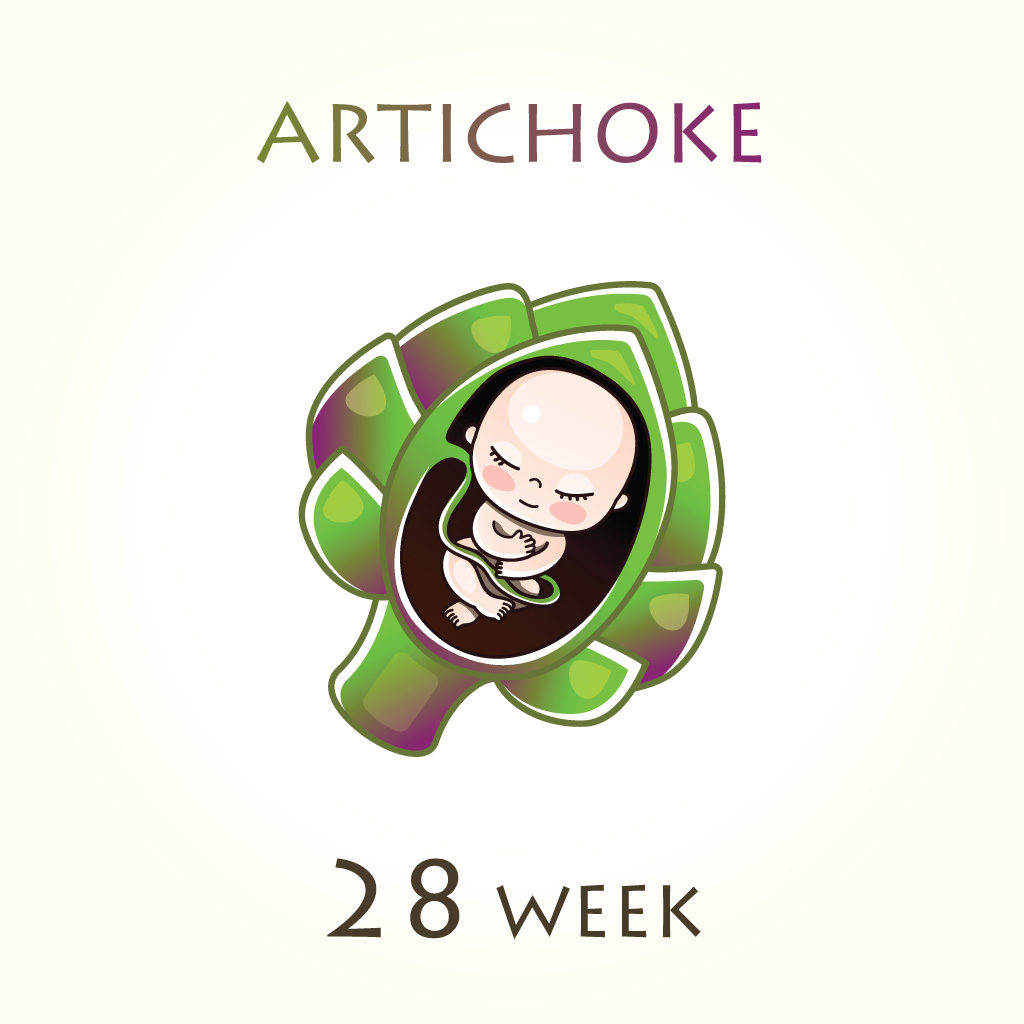Twenty-Eight Week Visit
Body Changes
Your uterus is moving above your naval. You may start to notice the beginning of stretch marks on your abdomen, hips, and breasts. You may have occasional heartburn, so avoid heavy, spicy, or greasy foods.
Fetal Growth
Your baby is approximately 14 inches long and weighs about 2 to 2 1⁄2 pounds and can respond to external noises. Your baby can kick, cry and hiccup.

Specific Instruction for this Month:
- Tests: If you are Rh negative, you will receive Rhogam at 28 weeks.
- Begin your search for a pediatrician. Ask your friends, check your insurance list of doctors, and consider what office location is best for you. We also have a list of pediatricians that we can give you to help with your choice
- Fetal movement counts usually begin at 30 weeks.
Fetal Movement Counting
What is fetal movement counting?
Fetal movement counting often called kick counting, is a way a mother can help monitor the movements of her unborn baby by counting the number of kicks in a certain time period.
By 20 weeks gestation, most pregnant women feel their baby’s first movement. But, movements vary in frequency, strength, and patterns, depending on the maturity of the fetus. Generally, most fetuses tend to be more active in the evening hours, beginning as early as the second trimester. Hiccups are quite common, and a fetus may be more active about an hour after the mother eats due to the increase in blood glucose (sugar) in the mother’s blood. Kick counts usually begin at 30 weeks.
Fetal movement is an indicator of fetal health. Although the average number of kicks is about four to six per hour, each fetus and mother are different. Each woman should note the usual pattern and number of movements for her individual pregnancy. A change in the normal pattern or number of fetal movements may indicate the fetus is under stress.
How is fetal movement counting done?
You should be aware of your baby’s movements each day. Set aside the same time each day to do the counting. After a meal is often a good time.
Write down the number of times you feel the baby kick or move in one hour. After several days, you may find the baby usually moves about the same number of times per hour – this becomes your baseline number.
Healthy babies are active. You should be aware of your baby’s movements each day. Babies do sleep. If the pattern of movement of your baby decreases, you should drink something cold and sweet and lie down where you will not be distracted, and perform a fetal movement count. If you do not feel fetal movement 6 times in that hour, please notify your physician/midwife.
